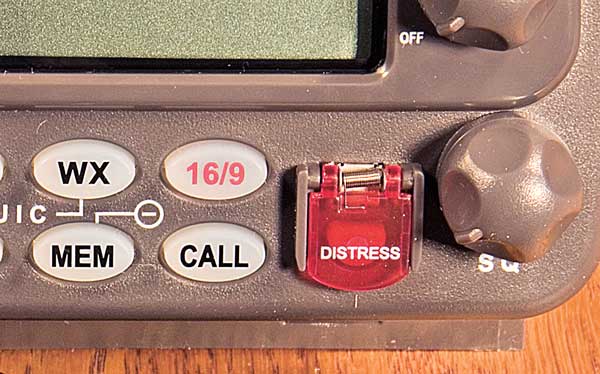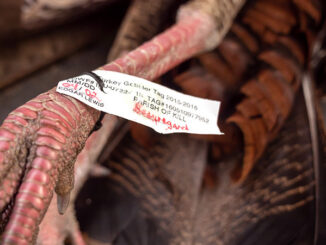
The Baton Rouge area offers plenty of public ponds that present anglers young and old the opportunity to fill their stringers.
Digital selective calling (DSC) features on VHF marine radios have been around for almost a decade. This feature lets you call other radios with the press of a button, using the called radio’s Maritime Mobile Service Identification number (MMSI) like a telephone number. A DSC call rings the called radio like a telephone, and then switches it to the working channel the caller is waiting on. This reduces the traffic on channel 16, and also means you don’t have to listen to a high-traffic channel just to hear a hail from a fishing or boating buddy.
The most important advantage of DSC is its one-button emergency distress signal capability. A person on your boat with zero radio experience can flip the protective cover out of the way and press the button to send the distress call. The button only has to be pressed once and held for about five seconds, and the radio will continue sending the distress signal without any additional human help.
Both emergency and non-emergency DSC calls require your radio to be programmed with its own unique nine-digit MMSI number. If you have a valid Federal Communications Commission station license or you plan to cruise international waters, you need to contact the FCC to get the proper MMSI number. A VHF station license is no longer required for cruising U.S. inland and coastal waters, and these “local” boaters can register by getting an MMSI Assignment from BoatU.S. (www.boatus.com/mmsi, 800-563-1536) or Sea Tow (www.seatow.com/boatingsafety/mmsiinfo.htm).
Your MMSI number is transmitted with a distress call, and the Coast Guard uses it to determine who you are and what your boat looks like. This makes it critical to keep your MMSI Assignment information up to date.
Connecting your DSC VHF radio to your boat’s GPS receiver allows the radio to include the coordinates of your location in a distress call, and that can make a life-or-death difference in the time it takes rescuers to reach you. It also allows you to stop cranking the big ones in long enough to digitally send your location to a fishing buddy, showing him exactly where you are without blabbing it over a voice channel. All you have to do is connect two wires from the radio with two wires from the GPS.
Some boaters have been less than enthusiastic about DSC, perhaps because boating buddies hadn’t upgraded to it yet and the Coast Guard was not immediately ready to maximize its life-saving potential when DSC was introduced. Things have changed. A lot of boaters have upgraded their radios in the 10 years since DSC appeared, and the U.S.C.G. Rescue 21 project is blowing reservations about DSC’s emergency capabilities out of the water.
Rescue 21 is replacing aging and just plain obsolete radio communications equipment in consoles at U.S. Coast Guard Sectors and Stations, and at remote transceiver sites (antenna towers) and within the networks tying them all together. Where feasible, the system incorporates direction-finding equipment to help zero-in on distress calls.
When completed, the Rescue 21 system will provide leading-edge VHF-FM communications with enhanced clarity and an upgraded recording and playback capability for distress calls. It will replace the VHF National Distress Response System put in place back in the 1970s.
Rescue 21 will cover the coastlines, navigable rivers and waterways in the continental U.S., Alaska, Guam, Hawaii and Puerto Rico, and close 88 known coverage gaps in U.S. coastal areas. Its expanded frequency capability will enable greater coordination with the Department of Homeland Security and other federal, state and local agencies as well as search and rescue first responders.
Right now, the system is up and running from New York down the East Coast to Florida’s Key West and then west along the Gulf Coast to the Houston-Galveston area. It is scheduled to be deployed all the way up to northern New England and stretched farther west to Corpus Christi, Texas, by December of this year.
So, if you haven’t yet upgraded to a DSC-equipped radio, be advised that radio prices have settled a bit and the system is up and running, just waiting for you to use it.


